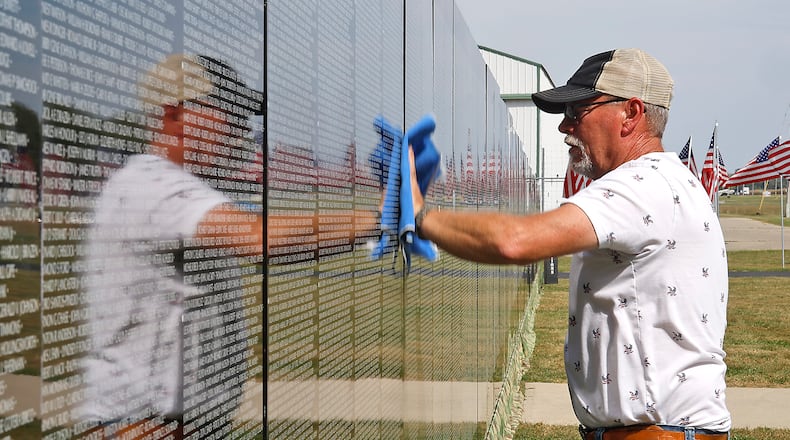Sarmiento was the first witness during a half-day of testimony from a dozen national veterans’ groups that included the VFW, Wounded Warrior Project, Paralyzed Veterans of America and Blue Star Families, among others.
The veterans service organizations highlighted their fiscal 2025 legislative agendas before lawmakers from both chambers. Collectively known as VSOs, the nonprofit groups have a mission to aid and serve veterans, service members, dependents and survivors.
Sen. Jon Tester, D-Mont., the chairman of the Senate committee, opened the joint hearing by highlighting his priorities that focused on pending legislation to protect VA benefits and improve their delivery to former service members.
Tester pointed to the Governing Unaccredited Representatives Defrauding VA Benefits Act, also known as the GUARD VA Benefits Act, which would impose criminal penalties including fines and prison time for individuals convicted of soliciting or receiving fees and other compensation to prepare or alter a veteran’s disability claim for VA benefits.
Federal law bans individuals and companies from assisting veterans in preparing their claims for disability benefits without accreditation from the VA Office of General Counsel. Many veterans service organizations have been trained by the VA in claims preparation and offer the service for free.
But the VFW and other veterans organizations who testified said the existing law is unenforceable because it lacks criminal penalties.
Tester said the GUARD Benefits Act would restore criminal penalties that were removed from the law and regulations 20 years ago.
He said record levels of benefits from the passage of the Sergeant First Class Heath Robinson Honoring our Promise to Address Comprehensive Toxics Act in 2022 have resulted in a proliferation of businesses illegally charging veterans to file claims for disability benefits when the service is provided for free by accredited veterans organizations, including the VFW.
The accreditation demonstrates the organizations have received VA training to prepare the claims and meet VA standards and regulations for providing the service.
Since the PACT Act became law in August 2022, more than 720,000 claims for disability benefits have been filed by veterans who were exposed to burn pits, herbicides and other toxic substances during military service, Tester said.
The act has yielded more than $1.8 billion in disability benefits to qualifying veterans, according to the VA.
Sarmiento said though some state legislatures recently passed laws to stop individuals and companies from illegally offering to help veterans with their claims, “it is time for a federal fix.”
Some companies also fraudulently solicit veterans with offers to boost their disability ratings for higher monthly benefits, he said.
“With the PACT Act, there has been an increase in online ads targeting veterans’ benefits with high fees. Taking money from veterans is distasteful, but taking money from their survivors is absolutely disgusting,” Sarmiento said.
He pointed to a pin that he wore on his lapel with picture of a shark’s fin and the message: “Do not feed the sharks.”
Sarmiento also urged lawmakers to pass the TAP Promotion Act, which would make claims assistance part of the required Transition Assistance Program, an educational course for service members in their final months of active duty.
The program provides service members with employment resources, information on veterans’ benefits and counseling services as they begin their transition to civilian life.
The TAP Promotion Act would add claims preparation help by veterans service organizations as a basic component of the course for exiting service members.
Nancy Espinosa, national commander of the Disabled American Veterans, said Thursday in a second day of testimony that her organization conducts extensive outreach to veterans with combat injuries who need help with their disability claims.
Members of the Disabled American Veterans also drive veterans to and from VA medical appointments. Both services are free.
Sen. Angus King, I-Maine, said there should be the same level of attention to a veteran’s transition to civilian life as there is to military recruitment of individuals entering the military.
“At one of the first armed service hearings I attended 10 years ago, I made the statement ‘Why don’t we spend as much money on transition as we do on recruiting?’ In other words, let’s take care of those veterans when they’re coming out,” he said.
About the Author
